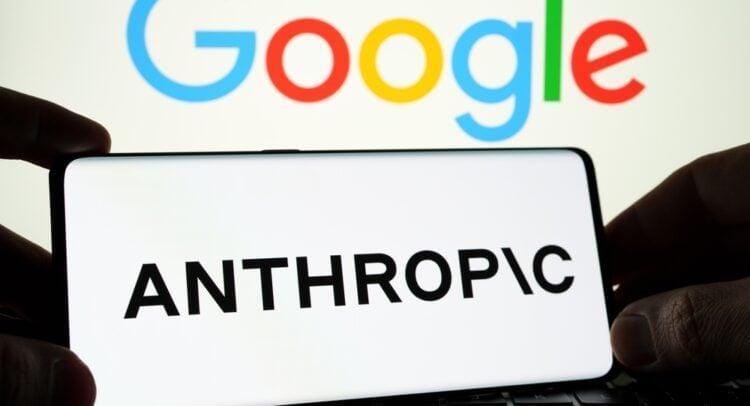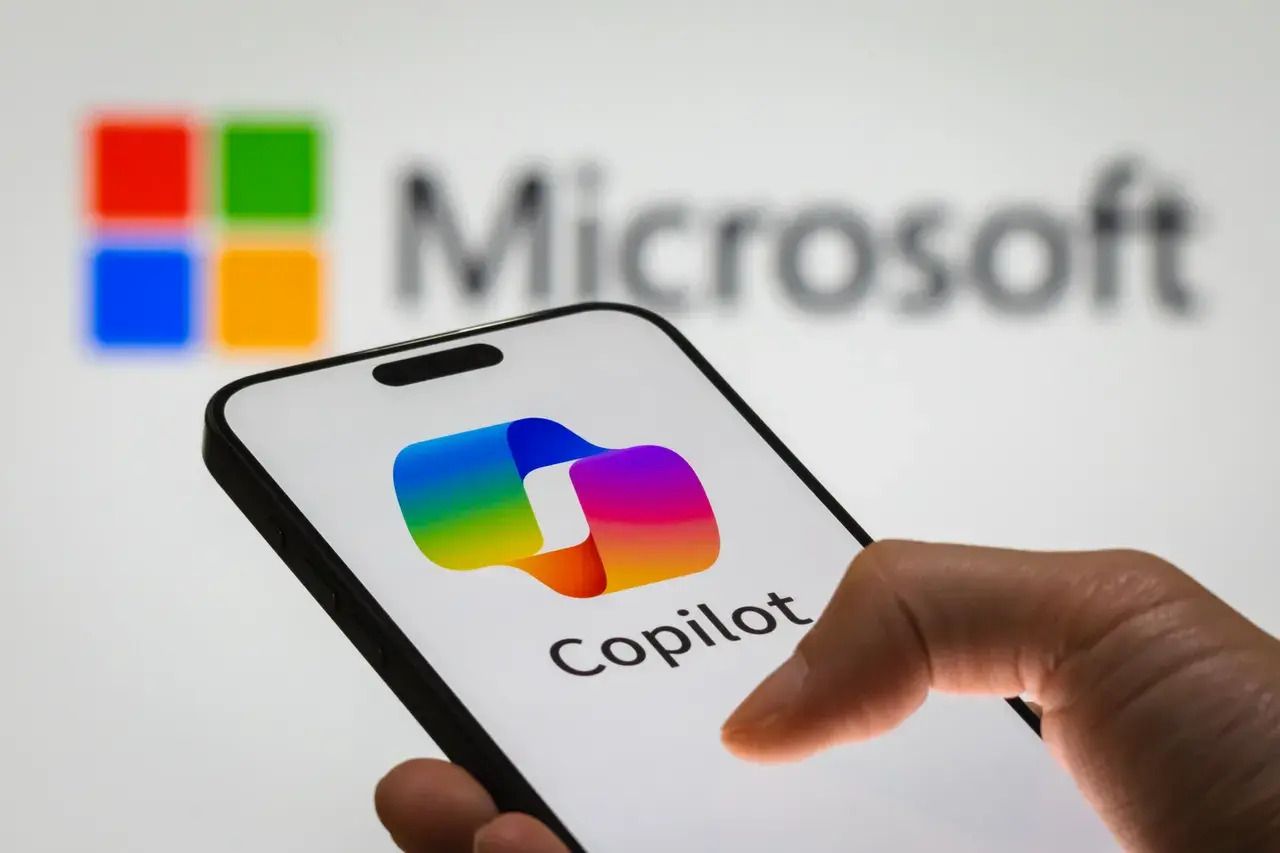- OpenTools' Newsletter
- Posts
- Anthropic Bets Billions on Google 💰
Anthropic Bets Billions on Google 💰
PLUS: Microsoft's Copilot makeover | OpenAI funds bioterror defense

Reading time: 5 minutes
🗞️In this edition
Anthropic locks in up to 1M Google TPUs worth "tens of billions"
Workflow Wednesday #41 ‘AI & Human Creativity’
Microsoft gives Copilot a face, memory, and 12 new features
OpenAI backs Valthos with $30M to stop AI-engineered bioweapons
In other AI news –
AI in biotech hits $11.4B
AI gun detection system mistook Doritos bag for weapon
weather forecasts get AI boost
4 must-try AI tools
Hey there,
Anthropic just signed the biggest compute deal in AI history—up to 1 million Google TPUs for "tens of billions." Microsoft's betting Copilot can be your friend with a blob avatar named Mico. And OpenAI's funding a startup to prevent the nightmare scenario where terrorists use AI to engineer superviruses.
We're committed to cutting through the noise and keeping you informed on what actually matters in AI. No fluff. Just the moves that'll shape the next five years.
Let's go.

Source: LinkedIn
What's happening:
Anthropic and Google officially announced a massive cloud partnership—up to 1 million Tensor Processing Units (TPUs) worth "tens of billions of dollars." The deal brings over a gigawatt of compute capacity online by 2026.
Google's stock jumped when the news dropped. Amazon's slipped—they've invested $8B in Anthropic and built custom infrastructure for them.
Anthropic's now at a $183B valuation after a $13B funding round last month. They're hitting a $7B annual revenue run rate while diversifying compute across vendors.
Why this is important:
This isn't just a cloud deal. It's Anthropic hedging their infrastructure bets.
AWS is still their primary provider, but relying on one vendor creates risk. Google's TPUs give them leverage and potentially better economics than scarce Nvidia GPUs.
The "tens of billions" commitment ranks among the largest AI infrastructure deals ever. For context, OpenAI's entire Stargate project is 33 gigawatts. Anthropic's 1+ gigawatt by 2026 is real execution, not vaporware.
Google gets validation that their custom chips compete with Nvidia. Anthropic gets diversification and scale without shouldering full capital risk.
Our personal take on it at OpenTools:
Anthropic's playing chess while everyone else plays checkers.
They spread workloads across AWS (Trainium chips), Google (TPUs), and potentially others. Every dollar of compute stretches further when you're not locked into single-vendor pricing.
Amazon should be nervous. Anthropic adding 5+ percentage points to AWS growth means losing them hurts. This deal signals Anthropic's willing to shift spend if terms aren't competitive.
The gigawatt number matters. Industry estimates peg a 1-gigawatt data center at $50B total cost, with $35B in chips. Anthropic's not paying that—Google is—but they're getting access at terms that let them stay profitable while scaling.
OpenAI's at $500B valuation and still unprofitable. Anthropic's at $183B, hitting $7B revenue, and building multi-vendor resilience. Slower, steadier, smarter.
Do you like the new OpenTools Newsletter Format? |
This Week in Workflow Wednesday #42: Sustainable AI – Using AI for long-term growth
This week, I’ll show you how to use Claude to build a full, well-worded newsletter (or blog post) in under an hour. Think of it as the cheat sheet for turning AI into your sustainable writing engine. |
Workflow #1: Build a Newsletter Engine with Claude (free). |

Source: AI Business
Microsoft dropped 12 major Copilot updates on Wednesday, including Mico—a blob-shaped avatar that reacts to your voice with animations and expressions.
The Fall Release adds long-term memory (Copilot remembers past conversations and preferences), shared group chats (up to 32 people), and deeper integration with Google services like Gmail, Drive, and Calendar.
New features: Copilot Actions (automates tasks like unsubscribing from emails), enhanced health research grounded in Harvard Health sources, and "Hey Copilot" as the wake word.
CEO Mustafa Suleyman positioned it as "human-centered AI"—tech that gives you time back, not demands more attention.
Why this is important:
Microsoft's trying to make Copilot feel less like a tool and more like a companion.
Long-term memory is the big unlock. Current AI assistants reset context after each session. Copilot now recalls your preferences, past projects, and important details across conversations.
The Google integrations matter more than people think. By connecting Gmail, Drive, and Calendar, Microsoft transcends ecosystem lock-in. You can use Copilot without fully committing to Microsoft 365.
Copilot Actions directly competes with ChatGPT Atlas (OpenAI's new browser with agent features) and challenges other AI browsers like Perplexity's Comet.
Our personal take on it at OpenTools:
Mico's cute, but the memory framework is the real play.
Enterprise Copilot can process 300-page documents (1.5M words) and store persistent memory through OneDrive and Dataverse. That's infrastructure that makes Copilot genuinely useful at scale, not just a chatbot wrapper.
The "human-centered" pitch is smart positioning against growing AI anxiety. Instead of "AI will replace you," it's "AI gives you time for what matters." Same outcome (automation), better framing.
But here's the tension: Microsoft's simultaneously building agents that automate workflows while promising AI won't replace human judgment. Those messages contradict each other long-term.
The Google integration is aggressive. Letting Copilot access Gmail and Drive puts Microsoft inside Google's garden, potentially pulling users toward Edge and Microsoft services over time.
If execution matches ambition, this positions Copilot as the operating system layer for AI—connecting apps, storing context, automating tasks. That's bigger than any single model.

Source: thenews.com
What's happening:
Valthos, a 9-person biosecurity startup, emerged from stealth with $30M from OpenAI, Founders Fund, and Lux Capital.
They're building AI systems that scan biological data from government and commercial databases to detect engineered threats in real-time and generate countermeasures.
The timing's urgent. A recent Center for AI Safety report described a worst-case scenario: a terrorist with basic lab access could use AI to create a hybrid pathogen—measles contagion, smallpox mortality, HIV evasiveness.
Co-founder and CEO Kathleen McMahon (ex-Palantir) says the mission is deterrence: "The only way to deter an attack is to know when it's happening, update countermeasures, and deploy them fast."
Why this is important:
AI democratizes access to dangerous biological knowledge.
The same LLMs that help design vaccines can guide bad actors through protein engineering. It's a dual-use technology problem with existential stakes.
OpenAI's backing Valthos as a hedge against their own technology's misuse. By investing in biodefense, they're building guardrails for capabilities they're actively developing.
This addresses one of AI's most credible x-risks. Nuclear and radiological threats require rare materials. Biological threats just need knowledge and a lab—AI narrows that knowledge gap.
Our personal take on it at OpenTools:
This is OpenAI admitting the problem is real.
They've faced pressure over dual-use risks. ChatGPT Agent was classified as "high risk" for bio-misuse—first product they've labeled that way. Backing Valthos is proactive defense against catastrophic scenarios.
But here's the uncomfortable truth: offense moves faster than defense in biology. Valthos is racing to build detection systems while AI models get more capable at designing pathogens every quarter.
The $30M is significant but not massive. Compare that to billions flowing into model training. The delta between offensive capability (AI designing threats) and defensive capacity (detecting/countering them) keeps widening.
Kathleen McMahon's team brings serious credentials—Palantir, DeepMind, Broad Institute. If anyone can build this, it's them. But the fundamental asymmetry remains: creating a pathogen is easier than defending against all possible pathogens.
Five years from now, this either looks prescient or insufficient. There's not much middle ground on existential risk.
AI in biotechnology market projected to hit $11.4B by 2030 – The global AI in biotech market is growing from $4.6B in 2025 to $11.4B by 2030 at a 20% CAGR, led by Nvidia, Tempus AI, and Recursion Pharmaceuticals. AI's accelerating drug discovery, clinical trials, and precision medicine, with North America dominating due to infrastructure and funding advantages.
Baltimore student handcuffed after AI gun detection system mistook Doritos bag for weapon – A 16-year-old at Kenwood High School was surrounded by eight police cars with guns drawn after an AI system flagged his crumpled Doritos bag as a firearm. Officials say the system worked correctly but human error triggered the police response. Two councilmen are calling for investigations.
World Meteorological Congress endorses AI for weather forecasts and early warnings – The WMO Extraordinary Congress issued a call for public, private, and academic sectors to collaborate on AI/ML weather prediction to protect against extreme heat, rainfall, and other hazards. The resolution anchors AI in WMO's global forecasting infrastructure while stressing AI must complement, not replace, existing scientific methods.
ProfileCrafter - An online service that uses AI to generate high-quality profile pictures and bios for various social media platforms
Elite AI Writer - A tool that helps users create SEO-optimized and plagiarism-free content for blogs, ads, emails, and websites 10x faster
60sec.site - A platform that allows users to create websites in under 60 seconds without any prior skills in marketing, design, or development
Dupe AI - A website that helps you find affordable alternatives to high-priced Amazon originals and other expensive items
We're here to help you navigate AI without the hype.
What are we missing? What do you want to see more (or less) of? Hit reply and let us know. We read every message and respond to all of them.
– The OpenTools Team
How did we like this version? |
Interested in featuring your services with us? Email us at [email protected] |